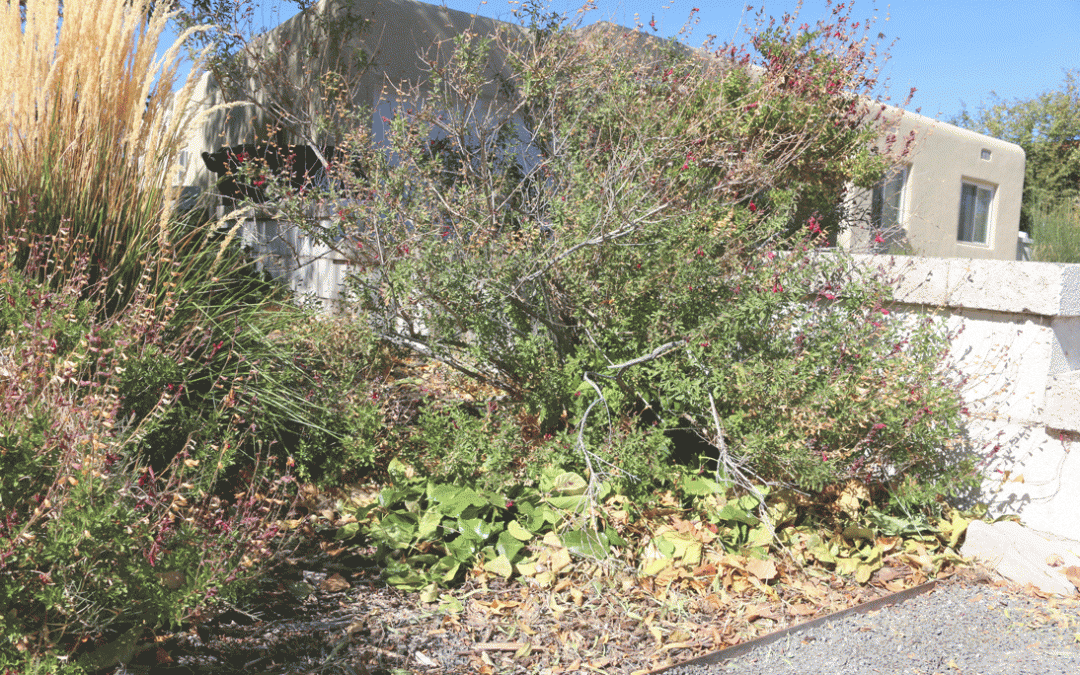Some of our best landscaping practices can be learned from Mother Nature. Every autumn, leaves fall to the ground, sheltering the soil and beneficial organisms, returning organic matter back to the ground, and perpetuating the nutrient cycling essential for good plant health. This year we want you to think about leaving those leaves in your garden. When we allow leaves to follow their natural life cycle, we can enjoy a colorful tapestry on our landscape as well as all the benefits provided by an organic mulch.
With these tips, you can spend less time raking leaves into plastic bags and enjoy more fall fun:
- When designing your landscape, make your pathways and hardscapes above the level of your planting areas. The wind will naturally blow leaves into the low spots where they will support soil and plant health. This also happens to be a great water harvesting strategy.
- Use organic mulches instead of gravel. Organic mulches such as wood mulch are visually accommodating to leaf litter (meaning you won’t notice them as much), allow for the leaves to decompose into the porous spaces and build soil. Leaves break down to virtually nothing in this environment. If you prefer a tidy look, follow up with a light topdressing of mulch for a finished appearance.
- If the leaf load is too much to manage directly under your trees, rake the leaves a little off the top and distribute them throughout your yard – ideally to a compost heap where the leaf litter will become an excellent soil amendment for your spring garden. Note: if you have chickens, they will turn your leaves into next to nothing in a matter of days.
- If you have a lawn, run your lawn mower over the leaves and let the crumbled litter work its way back into the soil. The addition of organic material to your lawn in the fall will give a boost to your lawn when it wakes up in the spring.
There are a few instances when you should remove fall leaf litter. Leaves from diseased plants – particularly fruit trees and roses – should be taken to a compost facility to be recycled. While you can try to compost them yourself, be advised that most backyard compost piles do not reach a high enough temperature to kill pathogens. Also, xeric plants that grow naturally in rocky terrain will be susceptible to crown rot if organic material is piled up around their bases.
Leaving fall leaves has another great benefit – it is carbon neutral. Carbon is sequestered in the soil, leaf blowers and plastic bags are removed from the equation, leaves don’t end up in a landfill or produce methane gas, and no transport to the landfill is required. It’s a win-win when we let Mother Nature be our guide.



